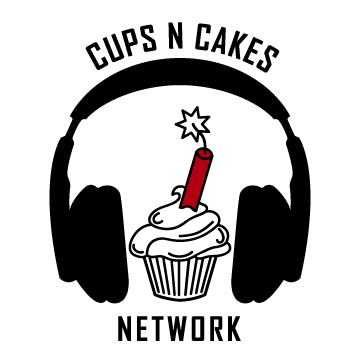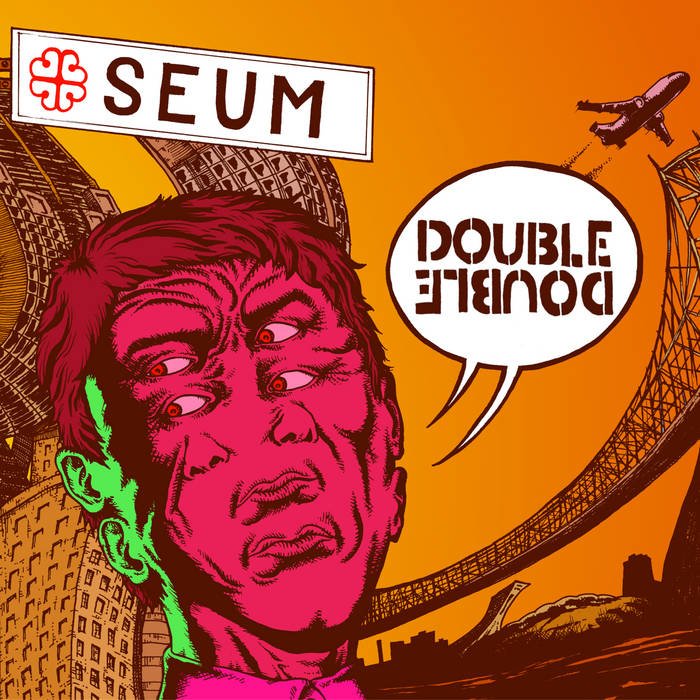Fucked Up, Jonah Yano, and Seum
Fucked Up
One Day // Merge Records
Okay. We all know Fucked Up is one of Canada’s great treasures. For more than two decades, the Toronto outfit has proven it time and again, to both scene and critical acclaim. Each iteration of their catalog has confounded expectations and expanded our imaginations. Ambitious, impish, and prolific, Fucked Up has made an iconoclastic habit of obliterating our notions of what hardcore music “should” sound like. These are artists. With their latest release, One Day, Fucked Up continue their staunch rejection of phoning it in - providing a fresh and evocative offering both in harmony with, and expanding upon, their dauntless canon.
I went into the album with some expectations. It’s Fucked Up, so as expected is the lush and densely woven sonic wall of guitar layers. Likewise, I expected Damian Abraham’s throatily hurled growls of snarled lyrics that somehow walk the balance between the abstractly cryptic and intimately heartfelt. I expected theatrics. I expected to find a band that delights in contradictions. There are certain signature Fucked Up things you expect from the band, which indeed One Day delivers. But the band also manages to offer new surprises. I.e., I didn’t expect it to be such a fucking bop.
One Day is fun. This isn’t out of character. It’s not that Fucked Up have ever taken themselves too seriously, despite their artistic approach and towering projects like 2021’s epic four-part Year of the Horse, or the entire Zodiac series for that matter. One of the major attractions to the band is their ability to maintain both playfulness and blisteringly heavy credibility. But One Day is undeniably catchy. There are tracks that are downright danceable. On this release, Fucked Up seem to be drawing power from influences across the rock spectrum. Punctuated throughout by twinned guitar hooks that are impossible not hear as an homage to Thin Lizzy, One Day thrashes its way back and forth across various sonic regions, from glam-tinged anthems, mathy prog riffs, power-pop hooks, and further afield - e.g., the beautifully weird sea-shanty lilt of “I think I might be Weird. Journeying through One Day is like visiting an alternate universe where the purifying fire of hardcore managed to save the souls of both classic rock and emo. I know these associations might be considered derisive in reference to a hardcore act, but it’s so lovingly and complexly crafted that it maintains an integrity long-time fans will still appreciate.
And also, it’s fun, but it’s not trite. On One Day Fucked Up maintains an obvious depth of thoughtfulness. With Abraham contributing lyrics for the first time since 2014’s Glass Boys, One Day contains lament, protest, and honest introspection. As an example, “Lords of Kensington”, delves into the theme of gentrification and uses it as an exploration into the human condition. At other times, like when guitarist Mike Haliechuck takes over vocals on “Cicada”, the band dives into loss and the honoring of grief. Indeed, a thread throughout the album is observing the passage of time, observing change, and carrying forward in the face of loss.
True to title, the core of One Day was written and recorded over the course of 24 hours. According to Haliechuk, “I wanted to see what I could record in literally one day.” The result is a record full of immediacy and urgency. The title track is a clarion call affirming Fucked Up’s still unsapped creative energy, and an invitation into the incredible possibilities a single day can hold. It also fucking slaps.
- Chris Lanniman
Jonah Yano
Portait of a Dog // Innovative Leisure
Portrait of a Dog is the new release from Japanese-Canadian artist Jonah Yano. Co-produced with BADBADNOTGOOD (with whom Yano is a frequent collaborator) Portrait of a Dog is much more jazz influenced than Yano’s first release souvenir and he continues to be vulnerable, this time reflecting on his family’s struggles with his grandfather’s recent dementia.
Yano brought together many artists for Portrait of a Dog; his ensemble included the members of BADBADNOTGOOD as well as Felix Fox-Pappas on piano and Eliza Niemi on cello. It also features string arrangements from Niemi, Leland Whitty, and Yano himself as well as features from Sea Oleena and Slauson Malone. From the instrumental “the ordinary is ordinary because it ordinarily repeats” to the extended outros on a number of songs, Yano makes plenty of space for each instrument and artist. This comes in the form of experimental jazz solos that bring dynamic energy to different songs like the track “always” that begins in the familiar with Yano singing over a fairly simple drums, bass, piano, and cello combination, but the extended outro begins with a piano solo then swells as the other instruments rise to meet it.
A key part of Yano’s music is his connection to his family. While his first album dealt primarily with the effects of his parent’s separation, Portrait of a Dog faces his grandfather’s looming dementia. Following the diagnosis, Yano rushed to his grandparent’s home in Vancouver and started recording as much as he could, using cameras and microphones to capture and archive their relationship at a time that his grandfather could still remember him. Some of those recordings are heard on different tracks, particularly “so sweet” which features a chorus from his grandfather’s perspective “You don’t have to be so sweet / so sweet to me”; the context comes as song ends with a recording of Yano’s mother repeatedly telling her father that she will take care of him and love him no matter what happens.
Yano is no stranger to baring his heart in his songs and the focus on having instruments and voice without much production adds to the genuine and sometimes raw feel of this album. It brings an intimacy that transports you to where Yano goes; from a small Toronto jazz club during a song like “always” to what feels like a room alone with him on the fragile track “song about the family house”. Portrait of a Dog is a showcase of Yano being open to collaboration with other artists whilst still succeeding in his own artistic vision.
- Alex Brassard
Seum
Double Double // Self-Released
It takes a lot of courage to enter the world of heavy rock and simply just do away with the guitars but, that is exactly what the album Double Double by Montreal crushers Seum does. This album immediately pulls you in with a lofi charm in a genre that generally rewards precision playing, and recording in cutting edge studios. It by no means sounds thin however as layer after layer of grimy bass tone is carefully mixed together with distorted and massive drums. The singer has enough grit and edge in his voice to rival early black metal bands, but breathes into it a more punk and in your face energy. The riffs themselves are incredibly groovy and range from sludgy like Acid Bath and Melvins to the more stoner-like with Sleep or Weedeater. Just when you think they couldn’t squeeze another catchy riff into a track, they hit you with tempo and rhythmic changes only the tightest of drum and bass duos can pull off.
The lyrics describe a bleak and apathetic landscape filled with nods to the dark side of Canadian culture such as wealthy snowbirds fleeing the cold leaving the rest of us to cope, usually with drugs, alcohol, and sometimes art. Even the album title Double Double is a nod to the Tim Hortons caffeinated delicacy, designed to fuel the blue collar worker, and thinly veiled as culture. Tracks such as “Razorblade Rainbow” describe societal apathy through using dangerous and reckless substances for the pure sake of boredom and poverty, and hopefully upsetting wealthy sensibility. “Dollarama” is another one of those unique nods that all impoverished Canadians will get as it describes the ridiculous nature of buying cheap and terribly made products to satisfy our need to consume, even in the poorest of circumstances.
The production of this album is a satisfying and rich one without being full of gimmicks normally present on other albums in this genre. It is raw and lofi yet serves all three members of the band equally well. There is a fullness to the drums that gives Double Double its hype and heaviness. The tones of the bass are chosen wisely to fill out each track. Upon first listen you’ll never notice this is only bass and drums. It is an honest and authentic sound that strips itself down to the bare necessity and creatively builds itself back up. The album was recorded in the band's own space making it unbelievably tight, but then thickened up by the mastering gods at Golden Mastering. It’s a refreshing breath of air not just for the Montreal metal scene but for heavy rock in general.
-Nigel Young



